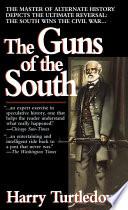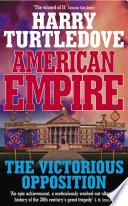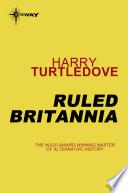Historical Note, p. 457
Ruled Britannia (2002)
Works

The Guns of the South
Harry TurtledoveThe Great War: American Front
Harry Turtledove
American Empire: The Victorious Opposition
Harry Turtledove
Ruled Britannia
Harry Turtledove
Settling Accounts: In at the Death
Harry TurtledoveFamous Harry Turtledove Quotes
Source: The Guns of the South (1992), p. 180
Source: The Man With the Iron Heart (2008), p. 17
Source: The Guns of the South (1992), p. 512
Source: The Guns of the South (1992), p. 234
Harry Turtledove Quotes about men
Source: The Guns of the South (1992), p. 4
Source: The Great War: American Front (1998), p. 33
Source: The Man With the Iron Heart (2008), p. 63
Source: The Guns of the South (1992), p. 182-183
Source: The Man With the Iron Heart (2008), p. 56-57
couldn't joke around with the one man who'd known him when he was just a sergeant, with whom could he joke? Nobody. Nobody at all.
Source: American Empire: The Victorious Opposition (2003), p. 533
Harry Turtledove Quotes
Source: Ruled Britannia (2002), p. 394
Context: Someone bumped into Shakespeare: Will Kemp. The clown made a leg- a cramped leg, in the crush- at him. "Give you good den, gallowsbait," he said cheerfully. "Go to!" Shakespeare said. "Meseems we are well begun here." "Well begun, ay. And belike, soon we shall be well ended, too." Kemp jerked his head to one side, made his eyes bulge, and stuck out his tongue as if newly hanged. With a shudder, Shakespeare said, "If your wind of wit sit in that quarter, why stand you here and not with the Spaniards?" "Why?" Kemp kissed him on the cheek. "Think you're the only mother's son born a fool in England?"
“If you want your freedom, go and take it."”
Source: Ruled Britannia (2002), p. 375
Context: Dying Boudicca managed a feeble nod, and sent her last words out to a breathlessly silent Theatre:
"E'en so; 'Tis true. Oh!- I feel the poison!
We Britons never did, nor never shall,
Lie at the proud foot of a conqueror,
But when we do first help to wound ourselves,
Come the three corners of the world in arms,
And we shall shock them. Naught shall make us rue,
If Britons to themselves do rest but true."
She fell back and lay dead. Shakespeare strode forward, to the very front of the stage. Into more silence, punctuated only by sobs, he said,
"No epilogue here, unless you make it;
If you want your freedom, go and take it."
Source: The Guns of the South (1992), p. 13
Source: The Man With the Iron Heart (2008), p. 7
Source: The Guns of the South (1992), p. 3
“People you don't like are pigheaded. Your friends are stubborn, or hold to their purpose.”
Source: The United State of Atlantis (2008), p. 184
Source: The Guns of the South (1992), p. 31
Source: The Great War: American Front (1998), p. 6
Source: The Guns of the South (1992), p. 176-177
made him whoop for sheer glee. He'd waited so long. Now his day was here.
Source: American Empire: The Victorious Opposition (2003), p. 534.
Source: The Man With the Iron Heart (2008), p. 11
Source: The Guns of the South (1992), p. 5
On Jake Featherston in an interview with Locus magazine (February 2003) http://www.locusmag.com/2003/Issue02/Turtledove.html
Now he sounded like a politician; he despised Theodore Roosevelt, and took pleasure in Roosevelt's dislike for him.
Source: The Great War: American Front (1998), p. 32
Source: The Man With the Iron Heart (2008), p. 528
Tor's Worlds Without Death or Taxes (December 2008) http://www.reason.com/news/show/129996.html
Source: The Guns of the South (1992), p. 234
It was a good answer. Lord Lyons nodded, as if in thoughtful approval. Then Lee remembered the Rivington men. They too had their ideas on what the Confederate States of America should become.
Source: The Guns of the South (1992), p. 183
Source: The Man With the Iron Heart (2008), p. 61-62
Ambrose Bierce, The Devil's Dictionary
American Empire: The Victorious Opposition (2003)
“Many things are possible. Few things are certain.”
Interview in Cybling (February 2001) http://www.cybling.com/artists/harrye.html
Source: Ruled Britannia (2002), p. 379
C.S. Army General George S. Patton's final address to the Army of Kentucky in July 1944, p. 339
Settling Accounts: In at the Death (2007)
“A horsefly can't do a horse much real damage, but it can drive it wild anyhow.”
Source: The United State of Atlantis (2008), p. 127
Source: The Guns of the South (1992), p. 458
Source: The Great War: American Front (1998), p. 7
Source: Settling Accounts: In at the Death (2007), p. 339
Source: The Great War: American Front (1998), p. 9
The answer roared from Reginald Bartlett's throat, as from those of the other tens of thousands of people jamming the Capitol Square. Someone flung a straw hat in the air. In an instant, hundreds of them, Bartlett's included, were flying. A great chorus of "Dixie" rang out, loud enough, Bartlett thought, for the damnyankees to hear it in Washington.
Source: The Great War: American Front (1998), p. 33
Source: The Great War: American Front (1998), p. 503
“I'm Jake Featherston, and I'm here to tell you the truth.”
Source: American Empire: The Victorious Opposition (2003), p. 274
Historical Note, p. 531
The Man With the Iron Heart (2008)
Source: The Guns of the South (1992), p. 4
Source: The Guns of the South (1992), p. 226
“Fiction has to be plausible. All history has to do is happen.”
Interview at the World Science Fiction Convention (25 June 1998) http://www.chicon.org/gohs/turtldov.htm
Source: The Man With the Iron Heart (2008), p. 412
